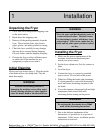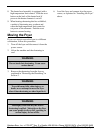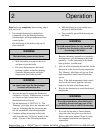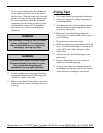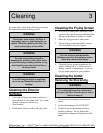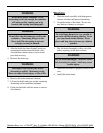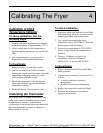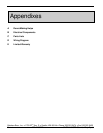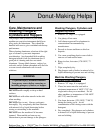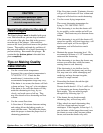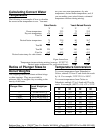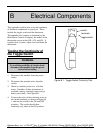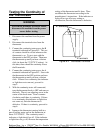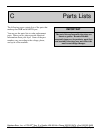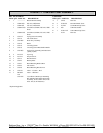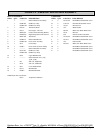
Belshaw Bros., Inc. • 1750 22
nd
Ave. S. • Seattle, WA 98144 • Phone 206-322-5474 • Fax 206-322-5425
616B & 616BT Counter Top Fryer MN-1136EN 9
A Donut-Making Helps
Care, Maintenance and
Cleaning Plungers,
Cylinders and Hoppers
The plungers and cylinders of your donut
machine are precision instruments built from
alloy steels and aluminum. They should be
handled with care to give continued satisfactory
performance.
When cleaning aluminum, selection of the right
type of cleaner is your most important
consideration. Any household dish washing
detergent which is safe for aluminum does a
good job of cleaning and does not attack
aluminum. Strong alkali cleaners, such as lye,
soda ash, and tri-sodium phosphate will discolor
or even corrode aluminum even in weak
solutions.
WARNING
To prevent injury, disconnect machine
from power source before removing or
installing plungers, cylinders, or hopper.
DO NOT handle roughly or drop on hard
surfaces.
DO NOT mix with other utensils in the sink
when washing.
DO NOT allow to rust. Always wash parts
thoroughly. Dry completely and then lubricate
with mineral oil or liquid shortening before
storing or reinstalling in the machine.
DO NOT force the machine if it becomes
jammed. Disassemble and remove any
obstruction to prevent damage to the plungers.
Washing Plungers, Cylinders and
Hoppers by Hand
1. Remove “O” rings if so equipped.
2. Use plenty of hot water
3. Add cleaner approved for aluminum in
concentrations recommended by
manufacturer.
4. Presoak to loosen stubborn or dried-on
deposits.
5. Use a non-scratching plastic scour cloth to
remove soil and restore luster.
6. Rinse in clear, hot water (170-190°F, 77-
88°C)
7. Wipe completely dry.
8. Dip plungers and cylinders in mineral oil or
liquid shortening to prevent rust and sticking.
Machine Washing Plungers,
Cylinders and Hoppers
1. Remove “O” rings, if so equipped.
2. Clean, hot water must be used with a
minimum temperature of 160°F (71°C) for
single tank conveyor or machines. For all
other machines, a temperature of 140-160°F
(60-71°C) must be used.
3. Use clean, hot water (170-190°F; 77-88°C)
during the rinsing cycle. Avoid
contamination of the rinsing water with the
detergent.
4. Dry completely. Dip plungers and cylinders
in mineral oil or liquid shortening to prevent
rust and sticking.



